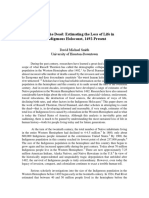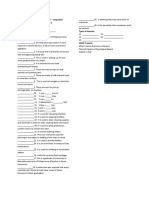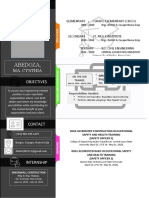0% found this document useful (0 votes)
7 views1 pageTime
Time management is crucial for success, productivity, and happiness, as it helps individuals prioritize tasks and reduce stress. Effective time management benefits students and professionals alike by enhancing discipline, planning, and efficiency. Poor time management can lead to procrastination and burnout, emphasizing the need to value time as a precious resource.
Uploaded by
sowmya vijayakumarCopyright
© © All Rights Reserved
We take content rights seriously. If you suspect this is your content, claim it here.
Available Formats
Download as PDF, TXT or read online on Scribd
0% found this document useful (0 votes)
7 views1 pageTime
Time management is crucial for success, productivity, and happiness, as it helps individuals prioritize tasks and reduce stress. Effective time management benefits students and professionals alike by enhancing discipline, planning, and efficiency. Poor time management can lead to procrastination and burnout, emphasizing the need to value time as a precious resource.
Uploaded by
sowmya vijayakumarCopyright
© © All Rights Reserved
We take content rights seriously. If you suspect this is your content, claim it here.
Available Formats
Download as PDF, TXT or read online on Scribd
/ 1




















































































